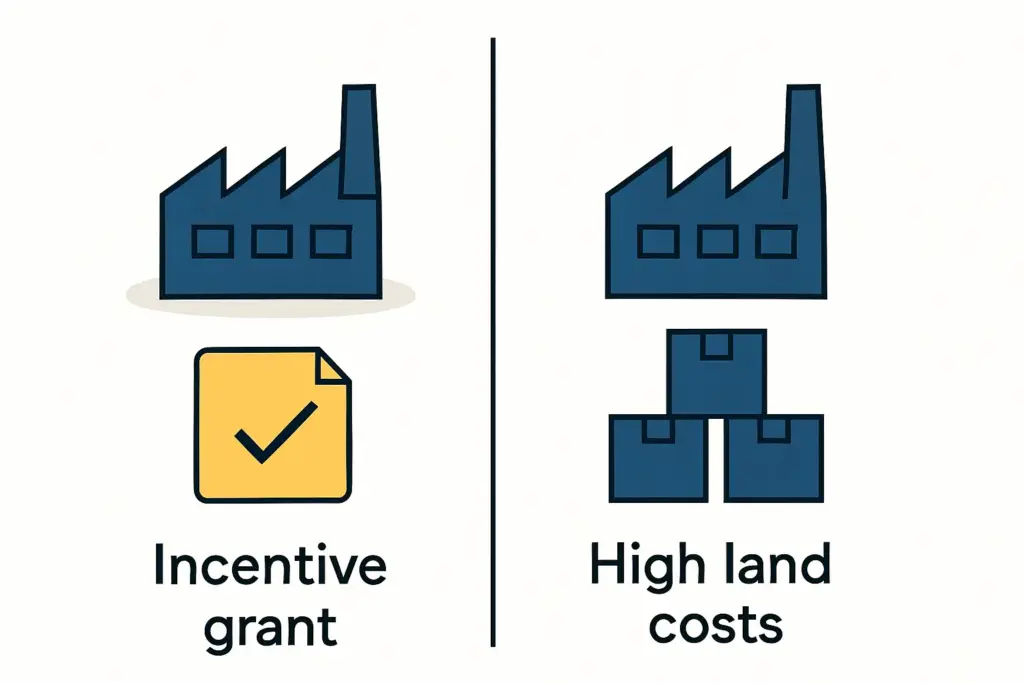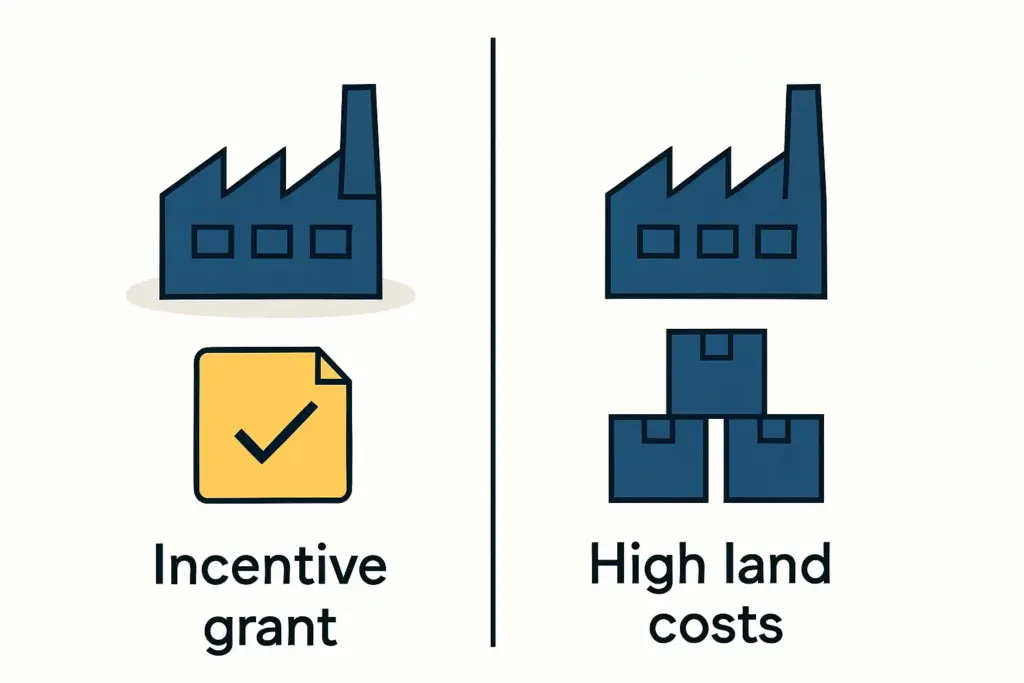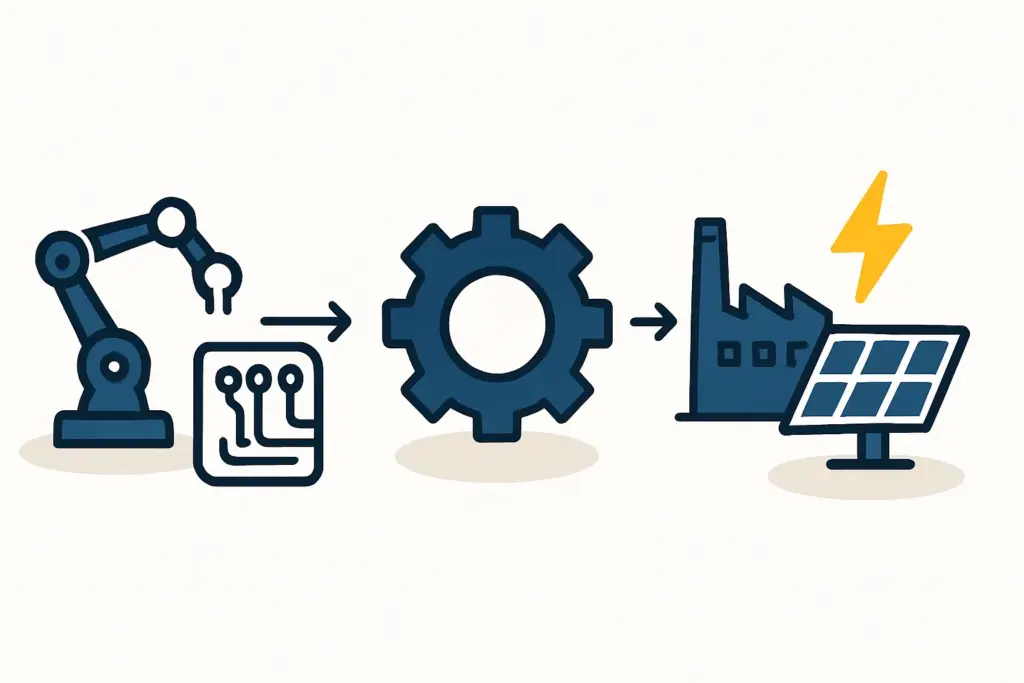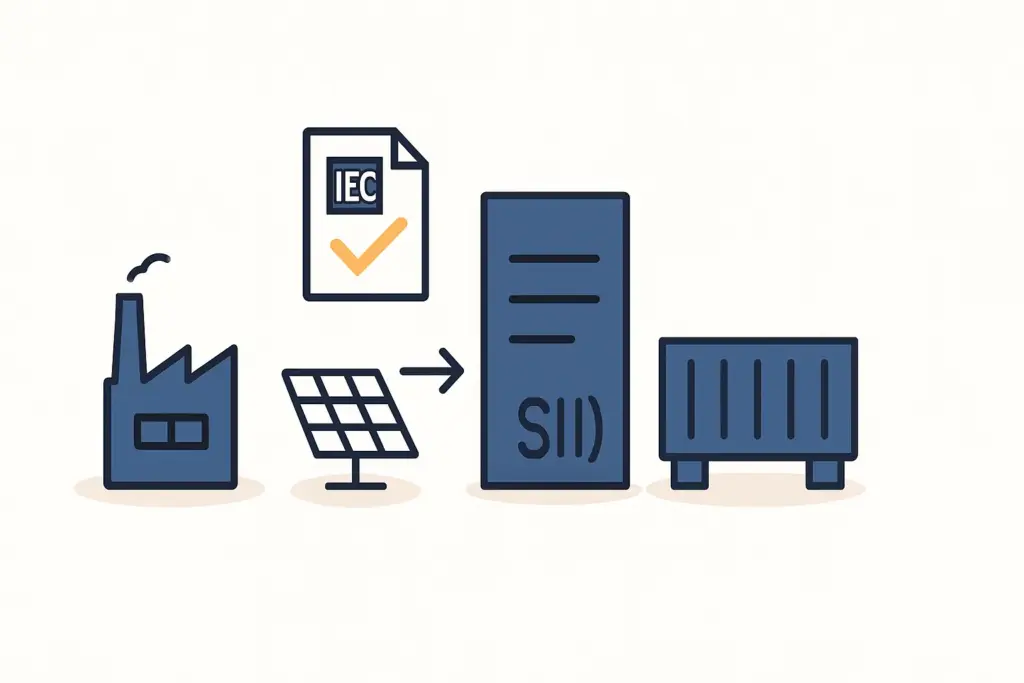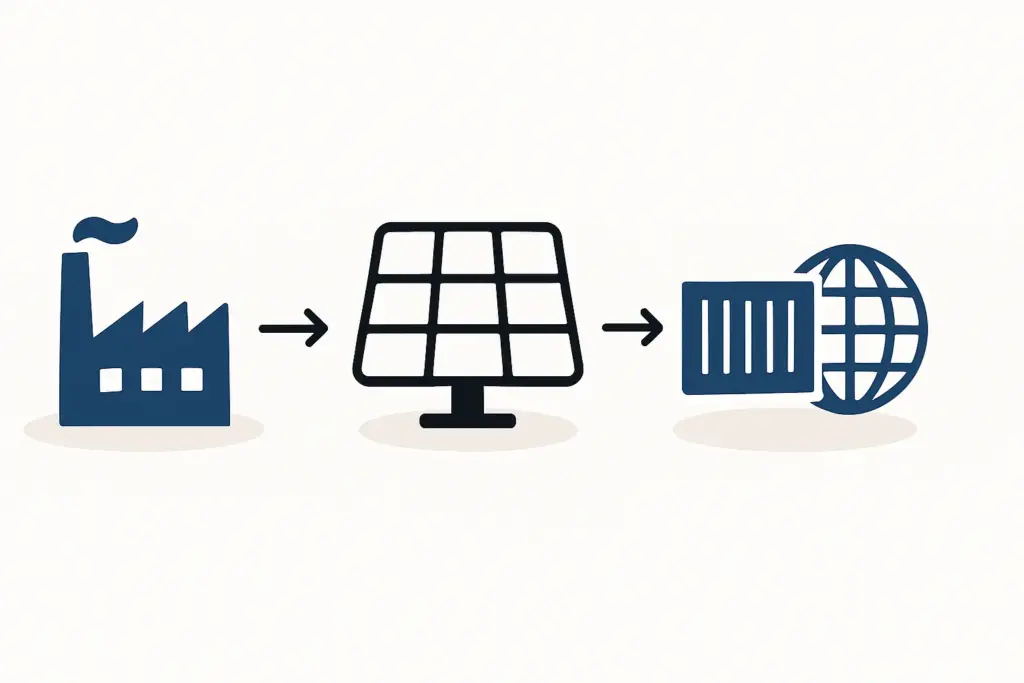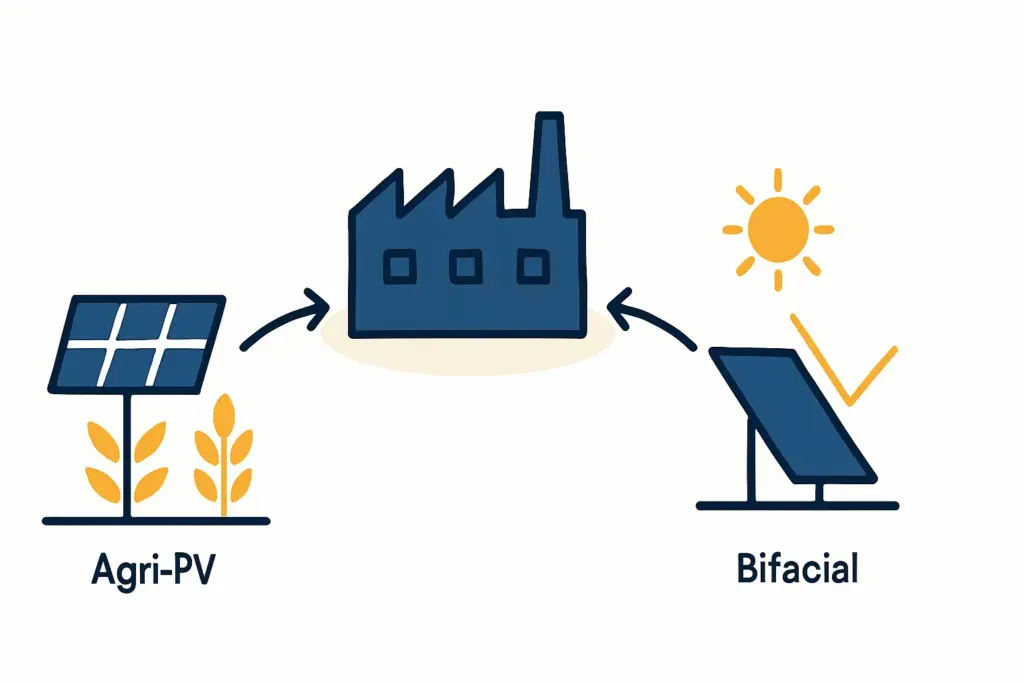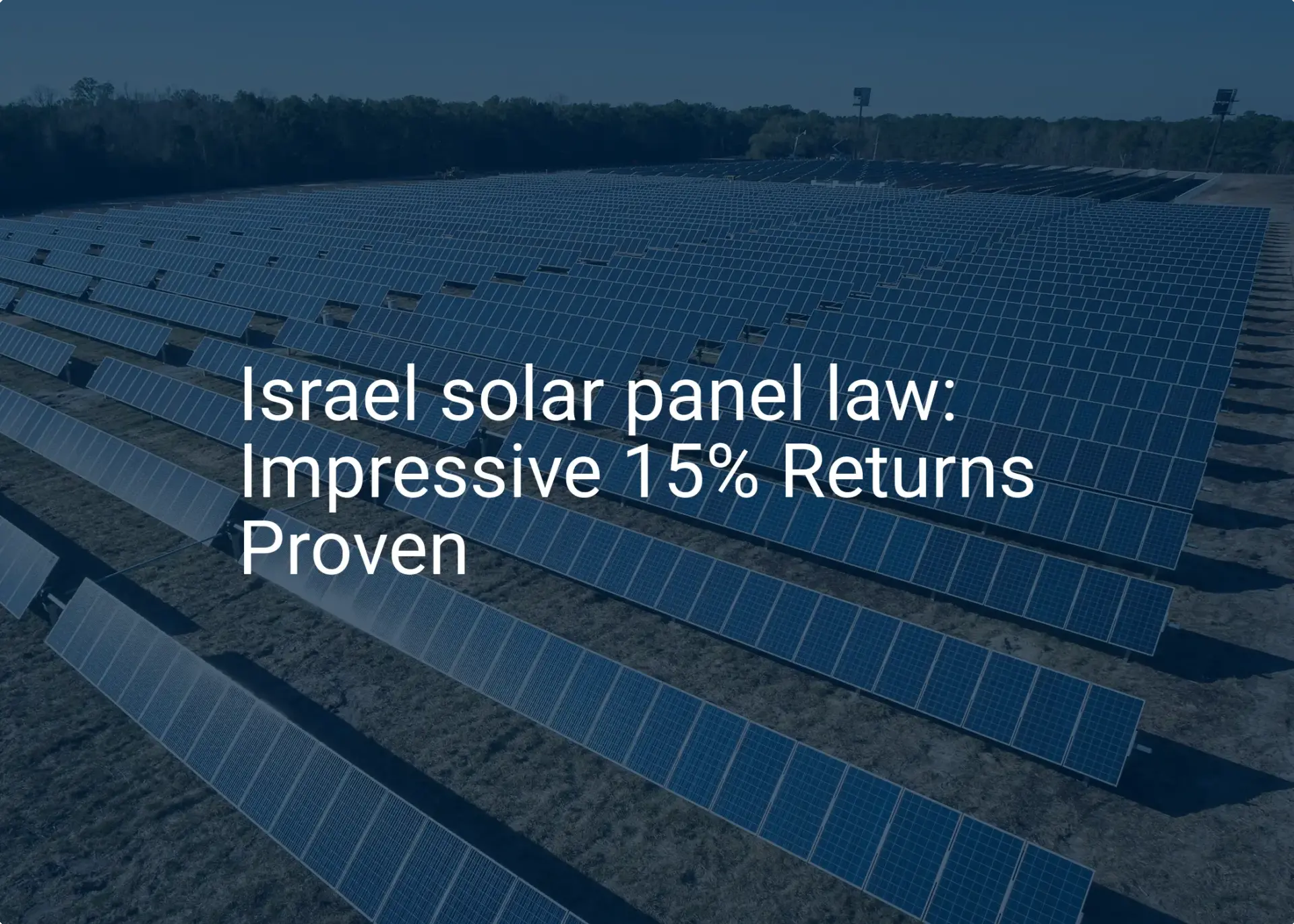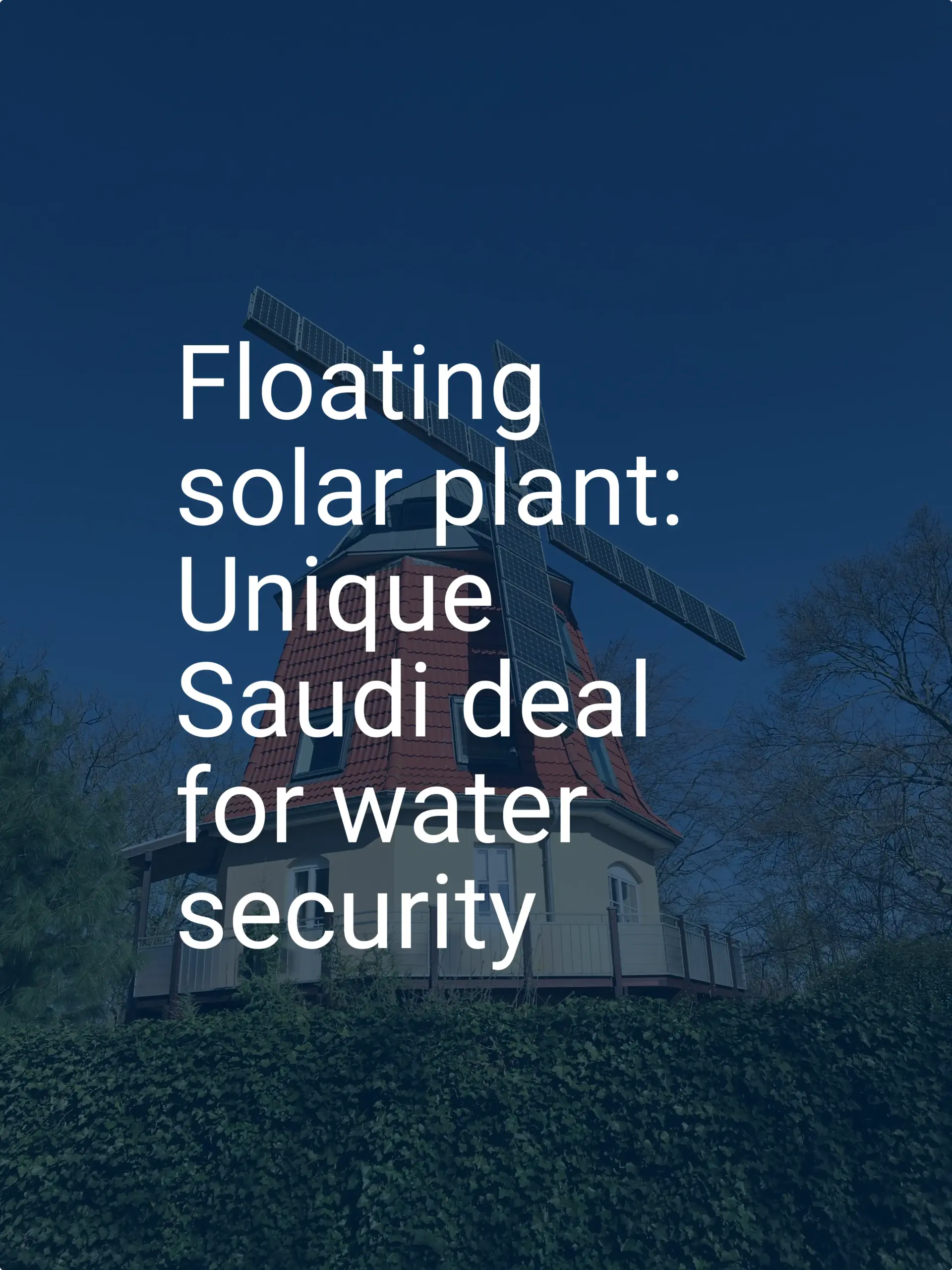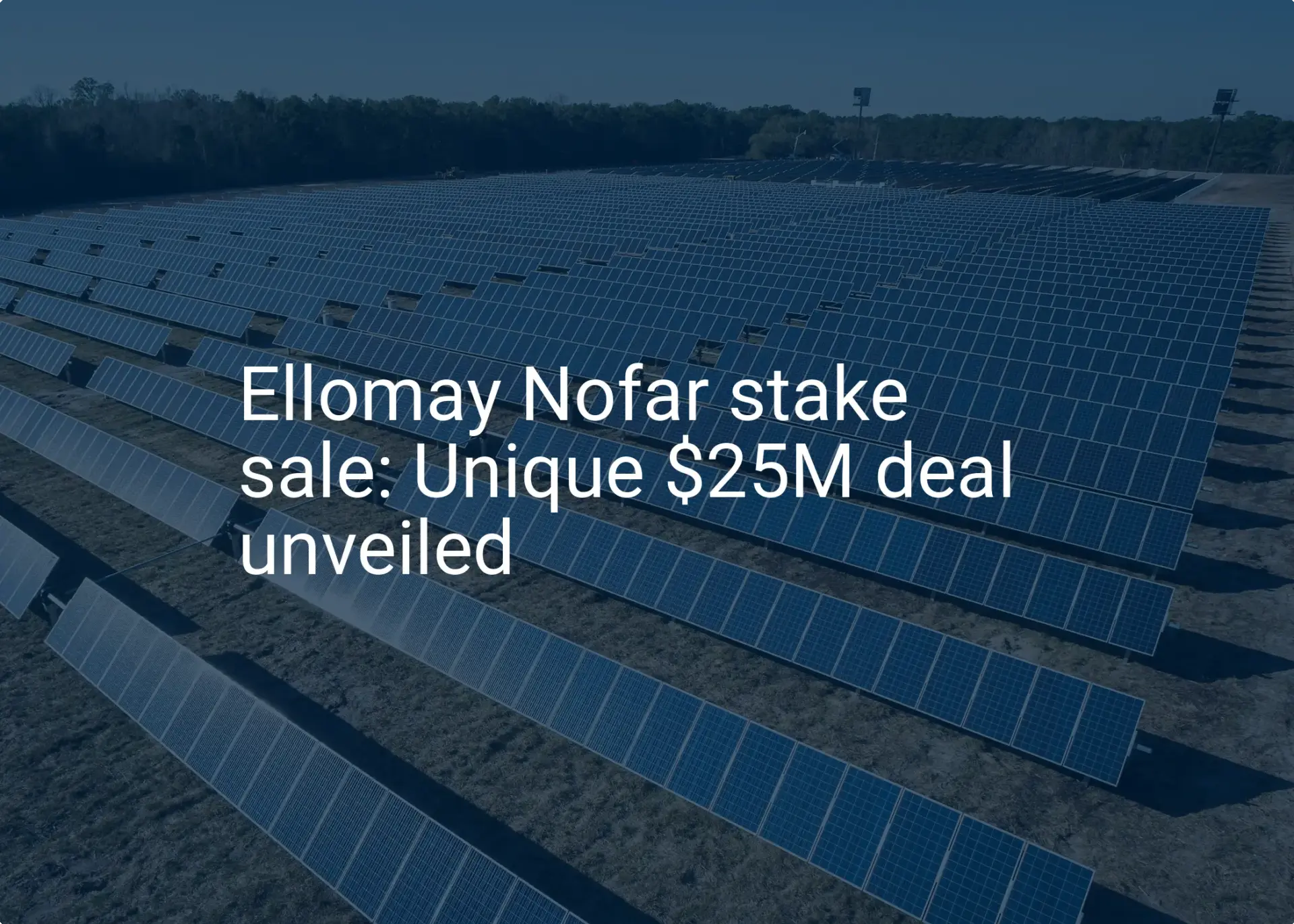Gain comprehensive insights into the statistics and metrics surrounding the solar production industry in Israel
- Climate Top (n.d.). Sunshine & Daylight Hours in Jerusalem, Israel. Retrieved December 24, 2024, from https://www.climate.top/israel/jerusalem/sunlight/
- Profile solar (n.d.). Solar PV Analysis of Jerusalem, Israel. Retrieved December 24, 2024, from https://profilesolar.com/locations/Israel/Jerusalem/
- Global petrol prices (2024, March). Israel electricity prices. Retrieved December 24, 2024, from https://www.globalpetrolprices.com/Israel/electricity_prices/
- International Trade Administration (2023, October 6). Israel – Country Commercial Guide. Retrieved December 24, 2024, from https://www.trade.gov/country-commercial-guides/israel-energy
- Solar quarter (2024, August 14). Israel receives proposals for 4,000 MW of large-scale energy storage facilities to boost grid reliability. Retrieved December 24, 2024, from https://solarquarter.com/2024/08/14/israel-receives-proposals-for-4000-mw-of-large-scale-energy-storage-facilities-to-boost-grid-reliability/
- INSS – The Institute for National Security Studies (2024, June 4). We need a new concept for the security of electrical systems in Israel in emergencies and routine times. Retrieved December 24, 2024, from https://www.inss.org.il/publication/electricity/
- International Renewable Energy Agency (2024). Renewable energy statistics 2024. Retrieved December 24, 2024, from https://www.irena.org/-/media/Files/IRENA/Agency/Publication/2024/Jul/IRENA_Renewable_Energy_Statistics_2024.pdf
- PV Tech (2022, May 30). Israel renewables roadmap targets 17GW of installed solar by 2030. Retrieved December 24, 2024, from https://www.pv-tech.org/israel-renewables-roadmap-targets-17gw-of-installed-solar-by-2030/
- Globes (2024, September 11). Gov’t report slams rooftop solar panels as too costly. Retrieved December 24, 2024, from https://en.globes.co.il/en/article-govt-report-slams-rooftop-solar-electricity-as-too-costly-1001488983
- Globes (2022, December 6). Israelis pay for delay in replacing coal-fired power stations. Retrieved December 24, 2024, from https://en.globes.co.il/en/article-israelis-pay-for-delay-in-replacing-coal-fueled-power-stations-1001431911
- Wikipedia (n.d.). Energy in Israel. Retrieved December 24, 2024, from https://en.wikipedia.org/wiki/Energy_in_Israel
- Leumi (2020, November). The Natural Gas Sector in Israel. Retrieved December 24, 2024, from https://english.leumi.co.il/static-files/10/LeumiEnglish/Economic_Weekly/Natural_gas_Nov2020.pdf
- Besa center (2024, May 30). The Security of the Israeli Electricity Sector During the Israel-Hamas War. Retrieved December 24, 2024, from https://besacenter.org/the-security-of-the-israeli-electricity-sector-during-the-israel-hamas-war/
- Research and markets (2023, April). Israel Solar Energy Market – Growth, Trends, and Forecasts (2023-2028). Retrieved December 24, 2024, from https://www.researchandmarkets.com/reports/5176227/israel-solar-energy-market-growth-trends-and
- PV magazine (2024, August 8). Israel mandates rooftop solar on new big buildings, targets 3.5 GW by 2040. Retrieved December 24, 2024, from https://www.pv-magazine.com/2024/08/08/israel-mandates-rooftop-solar-on-new-big-buildings-targets-3-5-gw-by-2040/
- OpenInfraMap (n.d.). All 188 power plants in Israel. Retrieved December 24, 2024, from https://openinframap.org/stats/area/Israel/plants
- LNRG Technology (2024, August 7). Overview of the Israeli electricity market 2024. Retrieved December 24, 2024, from https://www.lnrg.technology/2024/08/07/overview-of-the-israeli-electricity-market-2024/
- PV Magazine (2023, January 12). Israel’s behind-the-meter storage market to hit turning point in 2023. Retrieved December 24, 2024, from https://www.pv-magazine.com/2023/01/12/israels-behind-the-meter-storage-market-to-hit-turning-point-in-2023/
- PV Magazine (2024, March 26). Israel hits 51% renewable production for first time. Retrieved December 24, 2024, from https://www.pv-magazine.com/2024/03/26/israel-hits-51-renewable-production-for-first-time/
- Statista (2024, October). Average monthly wage in Israel from May 2023 to July 2024. Retrieved December 24, 2024, from https://www.statista.com/statistics/1342187/average-monthly-wage-in-israel/
- Salary Expert (n.d.). Solar Energy Systems Engineer. Retrieved December 24, 2024, from https://www.salaryexpert.com/salary/job/solar-energy-systems-engineer/israel
- Salary Expert (n.d.). Solar Energy System Installer. Retrieved December 24, 2024, from https://www.salaryexpert.com/salary/job/solar-energy-system-installer/israel/tel-aviv
- ERI Economic Research Institute (n.d.). Solar Energy Installation Manager Salary. Retrieved December 24, 2024, from https://www.erieri.com/salary/job/solar-energy-installation-manager/israel/nahariyya
- Worldometer (n.d.). Israel population. Retrieved December 24, 2024, from https://www.worldometers.info/world-population/israel-population/
- Dom Mediasova (n.d.). Real Estate Jerusalem. Retrieved December 24, 2024, from https://dom.mediasova.com/en/israel/1
- Mei Modiin (n.d.). Water Rates in Israel. Retrieved December 24, 2024, from https://mei-modiin.co.il/en/customer-service/understand-water-rates
- Israel national news (2024, November 19). Water prices in Israel to rise 3.4% starting January. Retrieved December 24, 2024, from https://www.israelnationalnews.com/news/399429
- Globes (2023, September 6). Tel Aviv office rents fall sharply. Retrieved December 24, 2024, from https://en.globes.co.il/en/article-tel-aviv-office-rents-fall-sharply-1001457239
- Statista (2024, September). Non-life insurances – Israel. Retrieved December 24, 2024, from https://www.statista.com/outlook/fmo/insurances/non-life-insurances/israel
- Privacy Shield (n.d.). Israel – Energy. Retrieved December 24, 2024, from https://www.privacyshield.gov/ps/article?id=Israel-Energy
- Enerdata (2024, January). Israel energy report. Retrieved December 24, 2024, from https://www.enerdata.net/estore/country-profiles/israel.html
- Ministry of Energy, State of Israel (2021, March). The Structure of the Energy Sector in Israel. Retrieved December 24, 2024, from https://www.gov.il/BlobFolder/reports/israel_energy_sector/en/israel_energy_sector_en.pdf
- Globes (2024, August 6). New buildings must have solar panels. Retrieved December 24, 2024, from https://en.globes.co.il/en/article-regulations-approved-requiring-solar-panels-on-new-houses-buildings-1001486127
- LinkedIn – European Law Group (2023, September 13). The Renewable Energy Law Review: Israel. Retrieved December 24, 2024, from https://www.linkedin.com/pulse/renewable-energy-law-review-israel-european-law-group/
- The international tracking standard foundation (2023, April 11). Use of I-RECs is speeding up in Israel: new local Israeli Renewables 100 initiative and first-ever national PPA (solar + storage) require I-RECs. Retrieved December 24, 2024, from https://www.trackingstandard.org/use-of-i-recs-is-speeding-up-in-israel-new-local-israeli-renewables-100-initiative-and-first-ever-national-ppa-solarstorage-require-i-recs/
- Global impact group (2024). Renewable Energy Tax Benefits in Israel. Retrieved December 24, 2024, from Renewable Energy Tax Benefits in Israel – Global Impact
- Renewable Watch (2018, April 20). Israeli government launches an incentive scheme for rooftop solar. Retrieved December 24, 2024, from https://renewablewatch.in/2018/04/20/israeli-government-launches-incentive-scheme-rooftop-solar/
- Solar quarter (2023, June 21). Israel mandates rooftop solar panels on new buildings to accelerate renewable energy transition. Retrieved December 24, 2024, from https://solarquarter.com/2023/06/21/israel-mandates-rooftop-solar-panels-on-new-buildings-to-accelerate-renewable-energy-transition/
- NS Energy (2019, September 4). Ashalim Solar Thermal Power Station inaugurated in Israel. Retrieved December 24, 2024, from https://www.nsenergybusiness.com/company-news/ashalim-solar-thermal-power-station-israel/
- Power Technology (2024, October 21). Power plant profile: Ketura Solar PV Park, Israel. Retrieved December 24, 2024, from https://www.power-technology.com/data-insights/power-plant-profile-ketura-solar-pv-park-israel/
- Globes (2023, September 27). Israel plans solar farms along Gaza border. Retrieved December 24, 2024, from https://en.globes.co.il/en/article-israel-plans-solar-farms-along-gaza-border-1001458821
- XINHUANET (2024, August 23). French company wins tender to build Israel’s largest solar power plant. Retrieved December 24, 2024, from https://english.news.cn/20240823/30e0c0e83a8d4abe807d188c4f542049/c.html
- No Camels (2024, October 15). Clean energy firm completes solar project in North, South Israel. Retrieved December 24, 2024, from https://nocamels.com/2024/10/clean-energy-firm-completes-solar-project-in-north-south-israel/
- Power Technology (2024, September 9). Top five solar PV plants in development in Israel. Retrieved December 24, 2024, from https://www.power-technology.com/data-insights/top-5-solar-pv-plants-in-development-in-israel/
- Mordor Intelligence (2024). Israel solar energy company list. Retrieved December 24, 2024, from https://www.mordorintelligence.com/industry-reports/israel-solar-energy-market/companies





